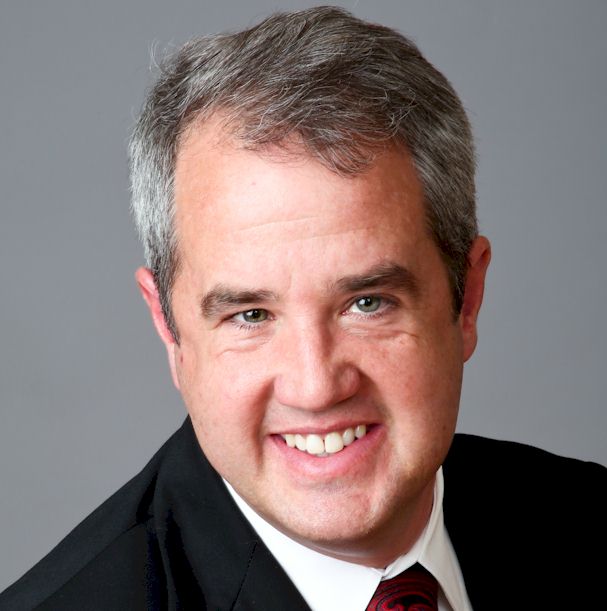Matt Werner
(719) 471-7957
Practice Areas: Defense of Persons Accused of Serious Felonies, Sex Assaults, Domestic Violence and DUI; Juvenile Defense; School Expulsion and Discipline Defense; Complex Civil Litigation and Personal Injury; Administrative Hearings.
Matt stays current with the frequent changes in DUI and Express Consent law in Colorado through a heavy book of DUI defense work, annual continuing legal education classes and frequent discussions with colleagues. He understands the license issues, jail alternatives, and legal issues that allow for a successful defense to minimize the consequences of the DUI charge.
Matt works to find issues — wrongful stops, poor investigations, inadequate chemical tests — that allow him to minimize the prosecution against his clients.
View ProfileWhy Attorney’s Need to Speak to Only Clients in Criminal Defense
It’s frustrating, I know, when I cannot tell you the information about your loved one’s or friend’s criminal case. Even when I know you just want to help, as an attorney, I have to follow the rules that ultimately protect your loved one’s privacy, confidentiality and court process. An attorney cannot take direction from anyone other than his client and will resist communicating with third persons on matters that the attorney thinks should be matters communicated between attorney and client alone. There are topics I will discuss with you – bond and court date issues – and others that I will not.
Attorneys have professional ethics meant to protect our clients and the judicial system generally. Professional ethics really means a set of rules attorneys have to follow. The ethics rules work. The simplest reason that an attorney cannot work through another person (a “third-party” to the attorney-client relationship) is that the client has not authorized it in most cases. I’ve had clients try to authorize me to have a third-party speak for him or her in a blanket way; I’ve even had a client give a third-party a power of attorney: they won’t work. No attorney would honor such a blanket authority to speak to or for the client in such personal matters as a criminal defense case. This article will try to explain why.
My first job as an attorney is to protect my client. Issues that come up with regard to information an attorney and client share are complicated. At the heart of the issues are careful balances between protecting my client and preventing the attorney-client privilege from being used as a fraud. The rules simply aren’t designed to allow for third persons to be involved – the presence of someone other than the client and attorney during a confidential communication waives the attorney-client privilege. Of course, there are exceptions – like when my client needs an interpreter to communicate with me or other similar assistance. When the privilege is waived, the loved one can be called to testify and also the attorney. No criminal defense attorney ever wants to be called as a witness against his or her client.
Even if you had a power of attorney from your loved one, an attorney is not required to honor it. My normal practice is to take direction only from my client and then only if my client and I have had a chance to confer on the issue verbally. That is the best practice for a criminal defendant, which is meant to protect him or her. It cuts out the middleman, avoids miscommunication and is the ethical imperative of my profession (to communicate with my client, Colo. R.P.C. Rule 1.4). Even if my client insists that I work with a third party, I will decline to do so in order to protect the client.
Communicating through any third-party risks waiving the attorney-client privilege. Even if communications through another are protected by some other privilege, see, e.g., Hiskett v. Wal-mart Stores, 180 F.R.D. 403 (D. Kan. 1998), such issues might have to be litigated (I know of no similar precedent binding on the Colorado District Court), exposing your loved one and my client to risks that s/he should not have to be exposed to. Why give a prosecutor the argument that attorney-client communications through another were not meant to be confidential?
To the extent third-party communications require other privileges to remain confidential, see Id., those privileges are susceptible to the whims of those who may be outside of my client’s control. Couples get divorced, for example, and then the marital privilege could be in doubt. No one can make me testify about my client’s and my confidential communications without his or her consent, regardless of whether I am still working for my client/former client. Testimony is not the end of the issue – I am still subject to my ethical duties not to disclose confidential information. A former spouse has no such duty.
An attorney communicating through any third party implies that the attorney meant for the third party to communicate with the client. Most third parties do not have a way to communicate with my client in a confidential manner. Communications between an attorney and client that are not communicated in confidence cannot be protected by the attorney-client privilege. When you call your loved one or video visit him or her, your communications are recorded and subject to review by state agents. That is not confidential. Just like if my client and I tried to communicate on a crowded bus, we cannot protect communications overheard by another bus passenger. I want to be very protective about the means I use to communicate with my client. That would be true even if my client was not in custody because your communications are subject to interception by authorities and disclosure to other third parties, intentionally or inadvertently. Communicating through a third party when I know the third party has to communicate with my client through non-confidential means is an implied waiver of the attorney-client privilege. My advice to any client would be: do not talk about your case to anyone other than your attorney. I certainly do not want to approve of a plan that has a third party discussing matters with my client related to his or her case in any way. It puts his/her defense at risk.
You can imagine that some spousal or family relationships include issues of coercion, undue influence or power and control. Certainly, that concern is heightened when my client is in custody, but may also arise even if my client is on bond. A client in custody might feel his or her access to human contact, access to money on books, access to help with bond, or other insecurity would be jeopardized if s/he did not cooperate with the requirements of a spouse or family member to have control over decisions or be involved in communications. A client out of custody may be beholden to a spouse or family member for room, board, employment, support or the like. Another reason I am reluctant to honor any delegation of direction or assignment of communication has to do with my concern that my client may not be expressing his/her true desires or uncorrupted desire regarding having a third party involved. These are not the kinds of issues a client would necessarily disclose ever, let alone during the first communications with his/her attorney.
No attorney wants to discuss sensitive issues with a person that may be involved as a witness or co-defendant. I do not know the facts of my potential client’s case without much reading and discussion. There are times when I do not know who is alleged to be involved. I cannot rule out anyone as a potential witness or co-defendant. It would be highly improper if I was to communicate issues of strategy and the like through a third party and then sought to call that same party as a witness at trial or hearing. That would almost certainly allow the prosecutor to cross-examine the third party on what facts s/he learned from being the go-between and what facts s/he observed him/herself. It would impact the credibility of the third party, hurt my client, and possibly disclose sensitive information that no one other than my client and me should know.
As a practical matter, attorneys have limited resources to devote to a client’s defense and cannot use those limited resources to communicate the same information to the client, his/her spouse, and then others. In short, forgive your attorney when s/he cannot work with your brother, mother, spouse or other close person. It may be frustrating for all involved, but it protects my client.
Schedule A Free Consultation*

*Free Initial Consultation not available for all practice areas.
How You Can Reach Us
Alpern Myers Stuart LLC values your time and understands that sometimes life doesn't happen around convenient days and times. Please call our office during normal business hours. Or, complete our online form to reach us 24 hours a day.
Matt Werner is available for Criminal Defense calls (El Paso County, Colorado) 24 hours a day. Please reach Matt at (719) 471-7957 and leave a message. Matt will call you back.
(719) 471-7957Call Us Today
